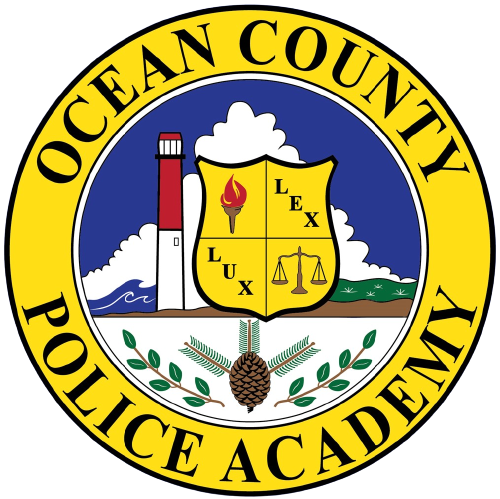How to Become a Police Officer in New Jersey
Before we can begin to explain the process for becoming a police officer, we must first define the different classifications of officers here in New Jersey.
They include:
- Police Officer
- Special Police Officer (Class I and Class II)
- Investigator
- State Corrections Officer
- County Corrections Officer
- Juvenile Corrections Officer
- Juvenile Detention Officer
Each of these classifications requires a different level of training, and the training tends to be specific to the tasks being performed. The information provided below will primarily focus on the position of police officer. However, we would be remised if we did not define the classification of Special Police Officer and discuss the route to becoming a Special Law Enforcement Officer.
There are two classifications for special officers that will be determined by the general duties to be performed by the officers.
Class One Special Police Officers are authorized to perform routine traffic details, spectator control and other similar duties. If authorized by township ordinance, class one officers are empowered to issues summons for disorderly persons and petty disorderly person’s offenses, violations of municipal ordinances and violations of Title 39. Class one officers are not authorized to carry a firearm and shall not be assigned to any duty which may require the carrying of a firearm.
Class Two Special Police Officers are authorized to exercise full police powers and duties similar to those of a permanent, regularly appointed full-time police officer. Class two officers may only carry a firearm while engaged in the actual performance of the officer’s official duties and when specifically authorized by the Chief of Police.
While not ever law enforcement agency utilizes Special Police Officers, many do. The best avenue for information on the position of Special Police Officer is to contact the agency you’re interested in and ask for their hiring process. It should also be noted that many shore towns hire Special Police Officers during the peak summer months.
Generally speaking there are three primary routes for becoming a police officer in New Jersey.
The first route is the New Jersey Civil Service Commission which governs the hiring practices of State government, 20 of the 21 counties in the state, and more than 200 towns.
In order to be considered for employment in an entry-level law enforcement position, candidates must pass a written exam called the Law Enforcement Examination (LEE). Those who pass the examination will remain in the eligible pool for two years. The pool of eligible candidates that result from the LEE will be used to fill positions for law enforcement titles in all Civil Services Jurisdictions.
Civil Service Requirements:
Education – Graduation from high school or vocational high school or possession of an approved high school equivalent certificate.
Age – Not less than 18 or more than 35 years of age at the announced closing date for filing applications for the position. In determining maximum age eligibility of veterans, the time spent in active military service during periods specified in Department of Personnel law and rules will be deducted from the attained age.
Citizenship – Must be a citizen of the United States.
Medical – As a prerequisite for appointment, appointees may be required to pass a thorough medical and psychiatric examination to be administered by the appointing authority.
License – Appointees will be required to possess a driver’s license valid in New Jersey only if the operation of a vehicle, rather than employee mobility, is necessary to perform the essential duties of the position.
NOTE: Additional information can be found at the New Jersey Civil Service Commission website www.state.nj.us/csc/ and specifically in the “Frequently Asked Questions” section.
A complete listing of the New Jersey Civil Service Jurisdictions can be found at www.state.nj.us/csc/about/divisions/slo/jurisdictions.html
The civil service towns in Ocean County include:
- Beach Haven Borough
- Beachwood Borough
- Berkeley Township
- Brick Township
- Jackson Township
- Lacey Township
- Lakehurst Borough
- Lakewood Township
- Lavallette Borough
- Little Egg Harbor Township
- Long Beach Township
- Ocean County
- Point Pleasant Beach Borough
- Point Pleasant Borough
- Seaside Heights Borough
- Seaside Park Borough
- South Toms River Borough
The second route is the direct application to a non-civil service town, which are commonly referred to as “Chief’s Departments.” These agencies can essentially establish their own requirements as their governing body deems appropriate. Some require college and/or military experience, or a combination of both. Most will require a written examination, physical fitness assessment, and an oral interview. Generally speaking, most will require the same age, citizenship, medical and license requirements as the New Jersey Civil Service Commission and the general qualifications defined in N.J.S.A. 40A:14-122
Note: Additional information can be found on most of the non-civil service town’s websites.
The non-civil service towns in Ocean County Include:
- Barnegat Township
- Bay Head Borough
- Harvey Cedars Borough
- Island Heights Borough
- Manchester Township
- Mantoloking Borough
- Ocean Gate Borough
- Ocean Township
- Pine Beach Borough
- Plumsted Township
- Stafford Township
- Surf City Borough
- Toms River Township
- Tuckerton Borough
The third and final is the Alternate Route Program. **(This program is currently suspended at our Academy)
The Alternate Route Program was designed to give individuals interested in becoming police officers, the opportunity to attend a certified police training academy at their own expense, prior to being hired by a police, sheriff’s or campus police department. The Alternate Route candidate trains alongside the regular police recruit and is treated as their equal during training.
Although successful completion of the program does not guarantee a candidate a position in law enforcement, graduates will have received training from a certified police academy and are able to pursue employment as a certified police officer for a 3-year period from the date of graduation.
Defined
In accordance with the provisions of N.J.S.A. 52:17B-69.1, an Alternate Route candidate is a person who does not hold a probationary or temporary appointment as a police officer, but who is seeking such an appointment. An Alternate Route candidate may enroll in the Basic Course for Police Officers provided that he or she:
- Meets the general qualifications for a police officer set forth in J.S.A. 40A:14-122, and such other qualifications as the Commission may deem appropriate; and
- Applies to and is accepted by a Commission approved school for admission to a police-training course.
Entrance Requirements
Alternate Route applicants must meet the standards required under N.J.S.A. 52:17B-69.1, including the general qualifications for a police officer as set forth pursuant to the provisions of N.J.S.A. 40A:14-122:
- Must be a citizen of the United States;
- Must be a resident of the State of New Jersey;
- Must have a valid New Jersey driver’s license;
- Must be sound in body and of good health sufficient to satisfy the board of trustees of the Police and Firemen’s Retirement System of New Jersey as to his eligibility for membership in the retirement system;
- Must be at least 18 years of age and not over 35 at the completion of the program (For municipal police officers)
- Must be able to read, write and speak the English language well and intelligently;
- Must be of good moral character, and have not been convicted of any criminal offense.
The Police Training Commission has established an education standard for Alternate Route applicants, requiring a minimum of 60 academic credits earned from a regionally accredited or Middle States accredited college or university, in order to be considered for admission to the Alternate Route Program.
The Commission recognizes the contributions and sacrifices made by military veterans for the safety, security and freedom of our society. An individual who has served in the military and who is otherwise qualified, but has not earned 60 college credits, may substitute two years of full time, active duty military service to satisfy the educational requirement. (Applicants must supply a copy of their DD214 as proof of military service.)
Selection Process
- Registration
- Written Examination
- Physical Fitness Agility Test
- Interview
- Formal Application
- Medical Examination including Stress Test and Drug Testing
- Pre-Employment Psychological Evaluation
- Background Investigation
The selection process begins with your Registration for the written examination. Registration for the exam will be completed online at www.policeapp.com during the enrollment period.
The Written Examination will be conducted by the Ocean County Police Chiefs Association in conjunction with the New Jersey State Association of Chiefs of Police. Information about the written examination will be available on the policeapp.com website. It will include location, date and time of the written examination.
NOTE: A minimum score of 70 will be required to move on in the testing process. The top 150 candidates will move on to the Physical Fitness Agility Test.
The Physical Fitness Agility Test will consist of the following events:
- Vertical Jump (15” Minimum)
- One Minute Sit up (28 Minimum)
- 300 Meter Run (Under 70.1 seconds)
- One Minute Push up (24 Minimum)
- 1.5 Mile Run (Under 15:55)
The procedure and order for testing is as follows:
- Warm up for 3 minutes, perform the Vertical Jump test, rest for 2 minutes.
- Perform the One Minute Sit Up test, rest for 5 minutes.
- Perform the 300-Meter Run, rest for 5 minutes.
- Perform the One Minute Push Up test, rest for 5 minutes
- Do cardio-warm up for 2 to 3 minutes, then perform the 1.5 Mile Run.
NOTE: The following minimums have been established for each of the tests cited above. Failure to achieve the established minimums will result in disqualification and removal from the testing process.
The Interview portion of the testing process will be conducted by members of the Ocean County Police Chiefs Association and the Academy Director.
NOTE: The Academy Director will determine the total number of interviews to be conducted based on the maximum number of alternate route seats (both primary and secondary) anticipated during the testing sequence.
All candidates who successfully complete the written examination, physical fitness agility exam and the interview will be required to complete the Formal Application.
Only those candidates (based on final ranking) chosen for the Alternate Route program will be required to complete the remaining selection criteria:
- Medical Examination including Stress Test and Drug Testing
- Pre-Employment Psychological Evaluation
- Background Investigation
Once all elements of the selection process have been completed, you will receive information about the upcoming class, and the fees associated with the training program. It is anticipated that the cost of the Alternate Route program will be $3,000. This will include tuition, educational and training supplies, uniforms and other ancillary items.
The Basic Course for Police Officers is generally twenty-two weeks in length and requires the trainee to attend classes Monday through Friday. The functional areas of study will include:
- Professional Development
- The Criminal Justice System
- Police Community Relations
- Law
- Legal requirements of Arrest, Search, Seizure, Evidence and Use of Force
- Communications
- Vehicle Operations
- Emergency Medical Care
- Weaponry and Unarmed Defense
- Patrol Concepts
- Traffic
- Criminal Investigations
- Physical Fitness
- Practical Exercises
It should be noted that New Jersey Police Training Act requires that all persons must receive a probationary or temporary appointment prior to attending the Police Academy. The only exception is those individuals enrolled in the Alternate Route Program.

